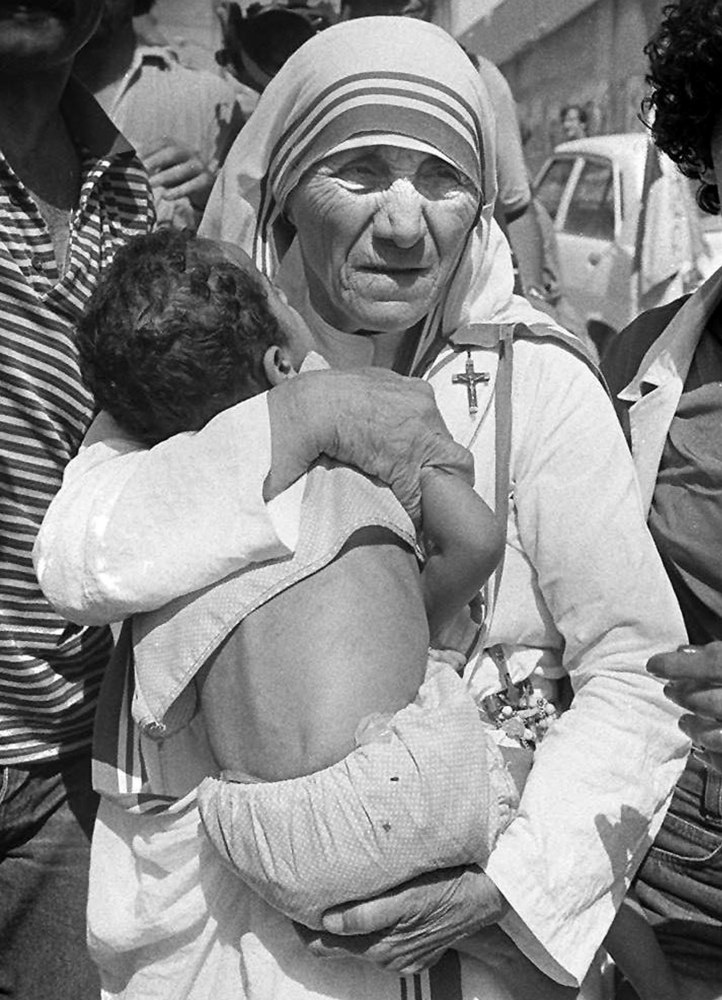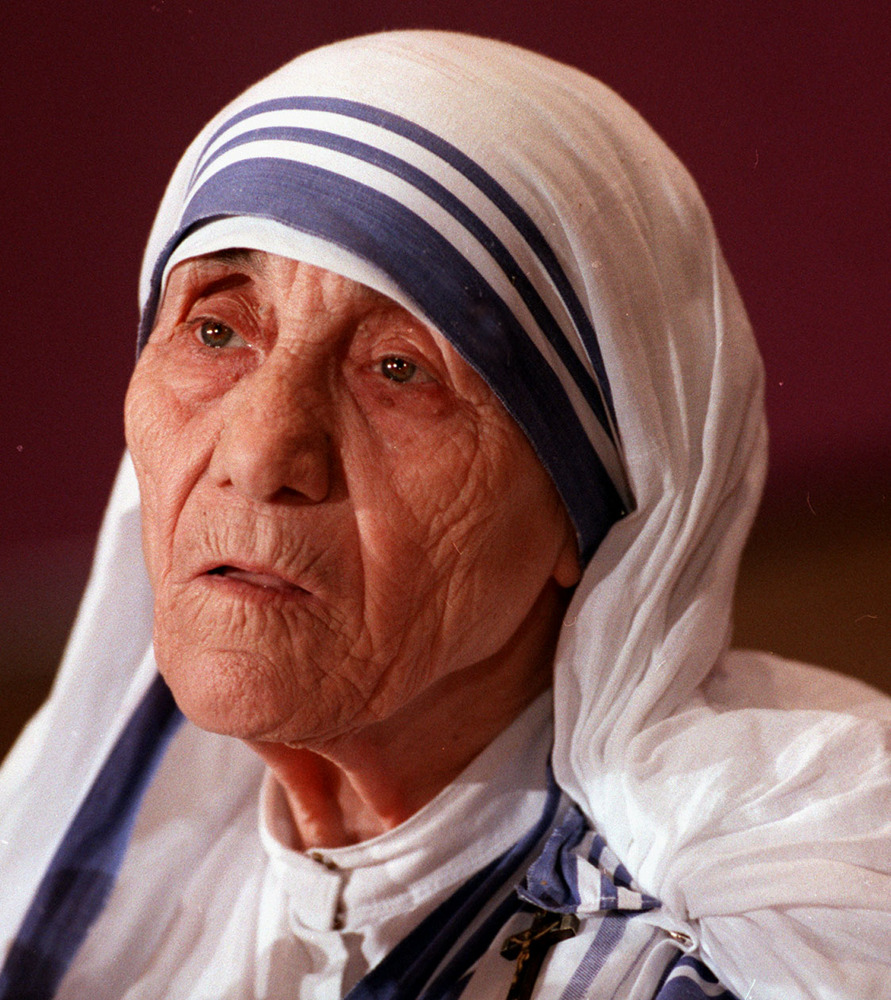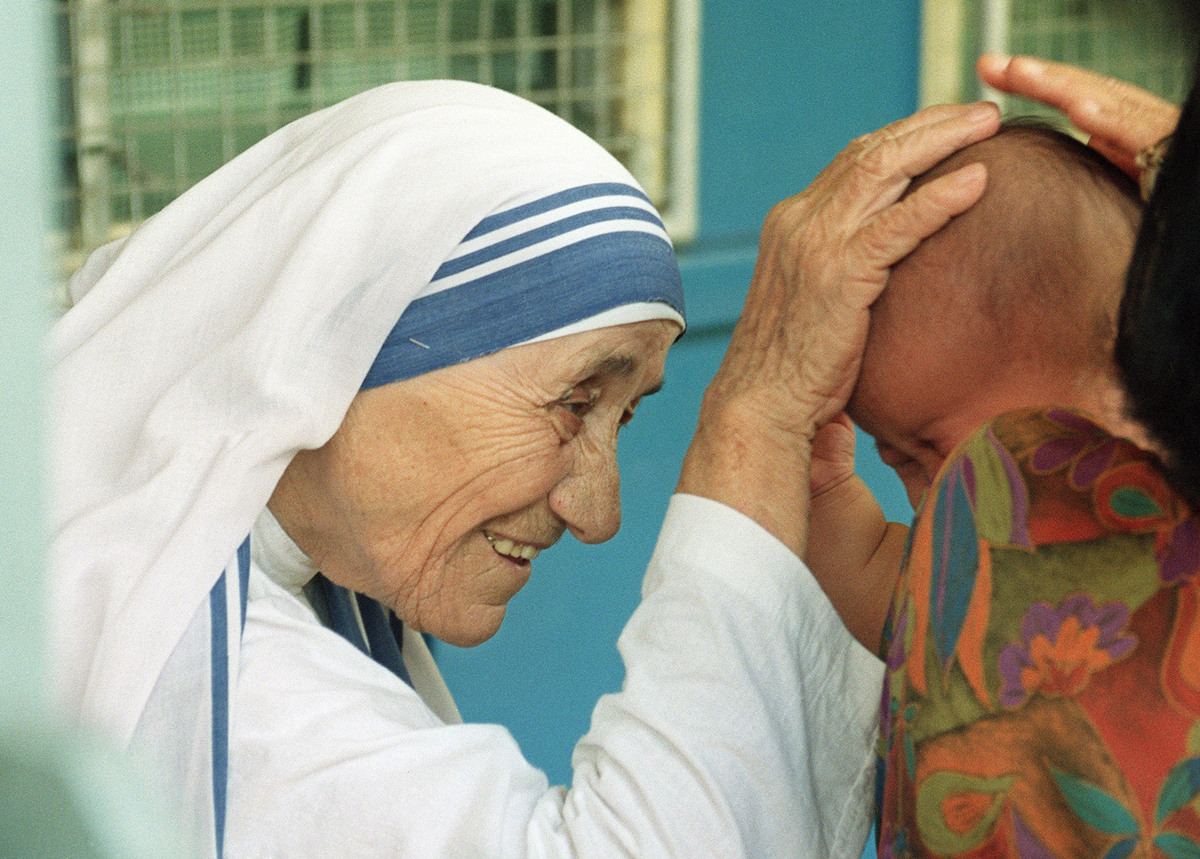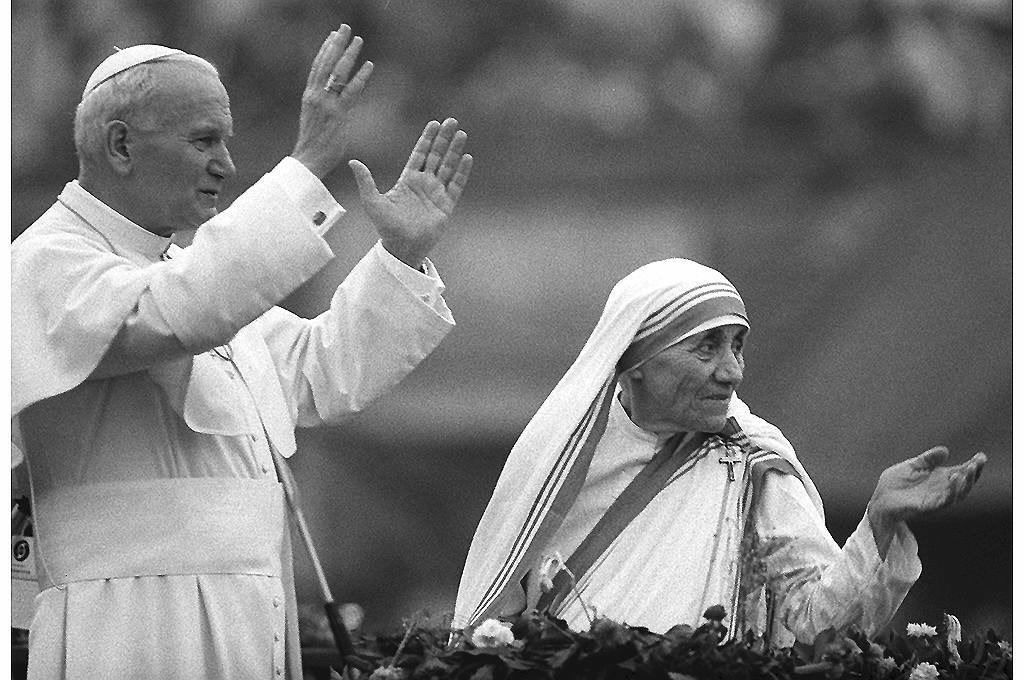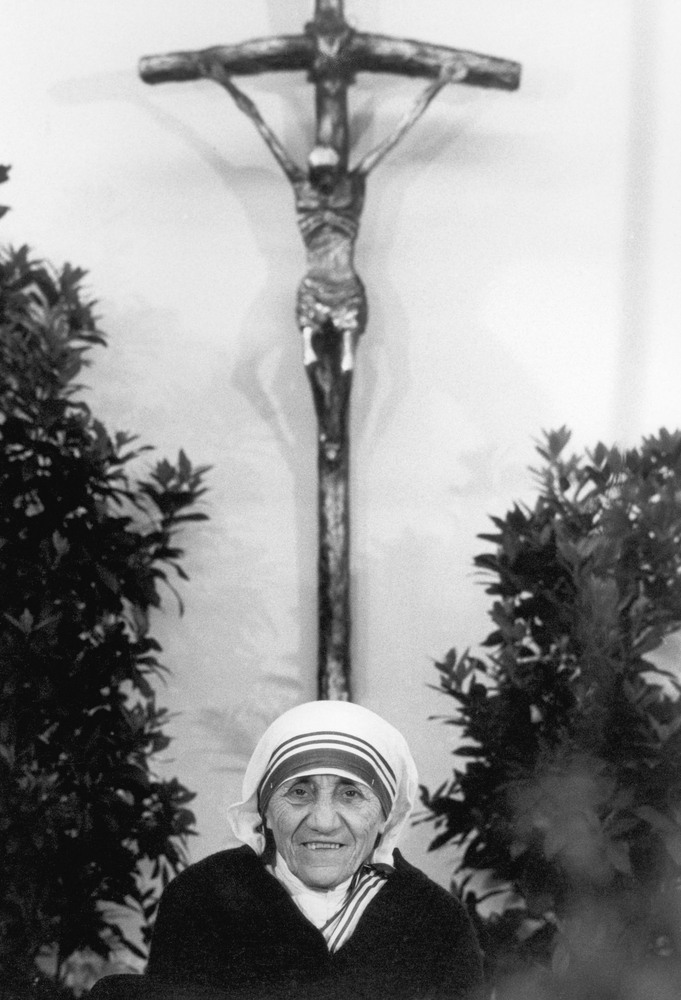Pope Meets with Refugees at JRS Centre
Yesterday the Pope visited the Centro Astalli, a center for refugees in the city of Rome run by the Jesuit Refugee Service. While there he spoke with the refugees and the JRS workers.
Dear Brothers and Sisters, good afternoon!
First of all I greet you, men and women refugees. We heard Adam and Carol: thank you for your strong, deeply-felt testimonies. Each one of you, dear friends, bears a life history that speaks of the tragedies of war, of conflicts, often linked to international politics. But every one of you bears, above all, a human and religious richness, a richness to be received, not feared. Many of you are Muslims or of other religions; you come from several countries, with different situations. We must not be afraid of differences! Fraternity makes us discover that they are richness, a gift for all! We live fraternity!
Rome! After Lampedusa and the other places of arrival, for many persons our city is the second stage. Often – as we heard – it’s a difficult, extenuating journey; what you face can even be violent – I’m thinking above all of the women, of mothers , who endure this to ensure a future for their children and the hope of a different life for themselves and their family. Rome should be the city that enables you to rediscover the human dimension, to begin to smile again. Instead, how many times here, as in other places, so many people who have in writing “international protection” on their residence permit, are constrained to live in hard situations, sometimes degrading, without the possibility of beginning a fitting life, of thinking of a new future!
Thank you, therefore, to all those, such as this Center and other ecclesial, public and private services, which work to welcome these persons with a plan. Thank you to Father Giovanni and to fellow Jesuits; to you, workers, volunteers, benefactors, who don’t just give something or time, but who try to enter into a relationship with those asking for asylum and with refugees, recognizing them as persons, committed to finding concrete answers to their needs. Always keep hope alive! Help to recover trust! Show that with welcome and fraternity a window on the future can be opened – more than a window, a door, and even more so if there can be a future! And it’s lovely that those working for the refugees with the Jesuits are Christian men and women and also non-believers or <members> of other religions, united in the name of the common good, which for us Christians is expression of the love of the Father in Christ Jesus. Saint Ignatius of Loyola wanted a space to be made to welcome the poorest in the premises where he had his residence in Rome, and in 1981, Father Arrupe founded the Jesuit Refugee Service, and wanted the Roman headquarters to be in those premises, in the heart of the city. And I think of that spiritual leave of Father Arrupe in Thailand, in fact in a center for refugees.
Serve, Accompany, Defend: the three words that are the program of work for the Jesuits and their collaborators.
Serve. What does it mean? To serve means to welcome the persons who arrives, with care; it means to bend down to one in need and to extend your hand to him, without reservations, without fear, with tenderness and understanding, as Jesus bent down to wash the feet of the Apostles. To serve means to work beside the neediest, to establish with them first of all human relations, of closeness to establish bonds of solidarity. Solidarity, a word that elicits fear from the more developed world. They try not to say it. It’s almost a dirty word for them. But it’s our word! To serve means to recognize and welcome the demands for justice, for hope, and to seek ways together, a concrete course of liberation.
The poor are also privileged teachers of our knowledge of God; their fragility and simplicity will unmask our egoisms, our false securities, our pretenses of self-sufficiency, and guide us to the experience of the closeness and tenderness of God, to receive His love in our life, His mercy of a Father who with discretion and patient trust, takes care of us, of all of us.
From this place of welcome, of meeting and of service I would like you all, all persons who inhabit this diocese of Rome, to ask yourselves this question: do I bend down to one in difficulty or am I afraid to soil my hands? Am I closed in on myself, in my things, or do I notice the one in need of help? Do I just serve myself or am I able to serve others as Christ did who came to serve to the point of giving his life? Do I look into the eyes of those who ask for justice or do I look the other way so as not to look into their eyes?
Accompany. Over these years, the Astalli Center has had a journey. In the beginning it offered first reception services: a refectory, a place to sleep, legal aid. Then it learned to accompany persons in their search for work and social insertion. And later it proposed cultural activities as well, to contribute to the growth of a culture of welcome, a culture of coming together and of solidarity, beginning with the protection of human rights. Hospitality alone isn’t enough. It’s not enough to give a bun if it isn’t accompanied by the possibility to learn to walk with their own legs. Charity that leaves the poor as they are isn’t enough. True mercy, which God gives and teaches us, calls for justice, for the poor to find the way so that they are no longer poor. It calls for – and asks us, the Church, us, the city of Rome, the institutions – calls for no one being in need of a refectory, of chance lodgings of legal aid service to have his right to live and to work recognized, to be fully a person. Adam said: “We, refugees, have the duty to do our best to be integrated in Italy.” And integration is a right! And Carol said: “Syrians in Europe feel the great responsibility not to be a weight; we want to feel an active part of a new society.” This, too, is a right! Look, this responsibility is the ethical basis; it’s the strength to builds together. I wonder: do we accompany this way?
Defend. To serve, to accompany means also to defend; it means to be on the side of the weakest. How many times we raise our voice to defend our rights, but how many times we are indifferent to the rights of others! How many times we don’t know or do not wish to give voice to the voice of those who – like you – have suffered and suffer, those who have seen their rights trampled upon, those who have lived so much violence that has suffocated even their desire to have justice!
It’s important for the whole Church that the welcome of the poor and the promotion of justice are not entrusted only to “specialists,” but that they focus the attention of the whole pastoral, of the formation of future priests and Religious, of the normal commitment of all the parishes, Movements and ecclesial groups. In particular – and this is important and I say it from my heart – in particular I would also like to invite the Religious Institutes to read seriously and responsibly this sign of the times. The Lord is calling us to live with more courage and generosity the welcome in the communities, in homes, in empty convents … Dearest men and women religious, the empty convents are useless to the Church if they are transformed into hotels and earn money. The empty convents aren’t ours; they are for Christ’s flesh, which the refugees are. The Lord calls us to live with generosity and courage hospitality in empty convents. It certainly isn’t something simple; we need criteria, responsibility, but also courage. We do so much, perhaps we are called to do more, welcoming and sharing with determination what Providence has given us to serve; to overcome the temptation of spiritual worldliness to be close to simple persons and especially the least. We are in need of solidaristic communities that live love concretely!
Every day, here and in other centers, so many persons, mostly young people, queue for a hot meal. These people remind us of the suffering and tragedies of humanity. But that queue also tells us that it is possible for all of us to do something now. Suffice it to knock on the door, and try to say: “I’m here. How can a give a hand?”
. . . . .
Here is some background on the visit from the Vatican:
Pope Francis made a private visit on Tuesday afternoon to the Centro Astalli – a soup kitchen and shelter for refugees operated by the Italian branch of the Jesuit Refugee Service [JRS], an international network that assists forced migrants and refugees. In Rome JRS services include three shelters, an Italian language school, a health facility with special attention for victims of torture, legal counseling services and a soup kitchen which is precisely where Pope Francis came to share a meal with the Centre’s guests.
Last year, the Jesuit-run Centro Astalli assisted 21 thousand people. It is one of hundreds of JRS initiatives worldwide: they are found in 50 countries, providing assistance to refugees in camps and cities, internally displaced persons, asylum seekers, and people in detention centres. The JRS provides emergency assistance, but not only: their main areas of work include education, healthcare, vocational training and social services. At present, more than 600 thousand people directly benefit from JRS projects. The director of JRS international , Fr. Peter Balleis SJ, told Vatican Radio the work of the organization is deeply rooted in the charism of the Society of Jesus. “250 thousand [direct beneficiaries] are in educational activities,” he said. “So, [as a matter of fact], we fulfill very much the image of the Society of Jesus as being a teaching, an education order – that is what we do.” Fr. Balleis SJ went on to speak of a specific initiative: an educational partnership between JRS camps in Jordan, Kenya and Malawi and Regis University in Denver, Colorado, which allows refugees to be regularly enrolled students in undergraduate programmes. “It’s about the future,” said Fr. Balleis SJ, about, “helping people reflect better, to think better, [to] become different leaders, in order to make a difference when they go back.”
At present, some of the most intense work JRS is doing is in and around war-torn Syria, where they are currently providing accompaniment, emergency items, and psychosocial support for displaced Syrians, as well as educational services for children.
The text is also found on Vatican Radio webpage and news.va webpage:
